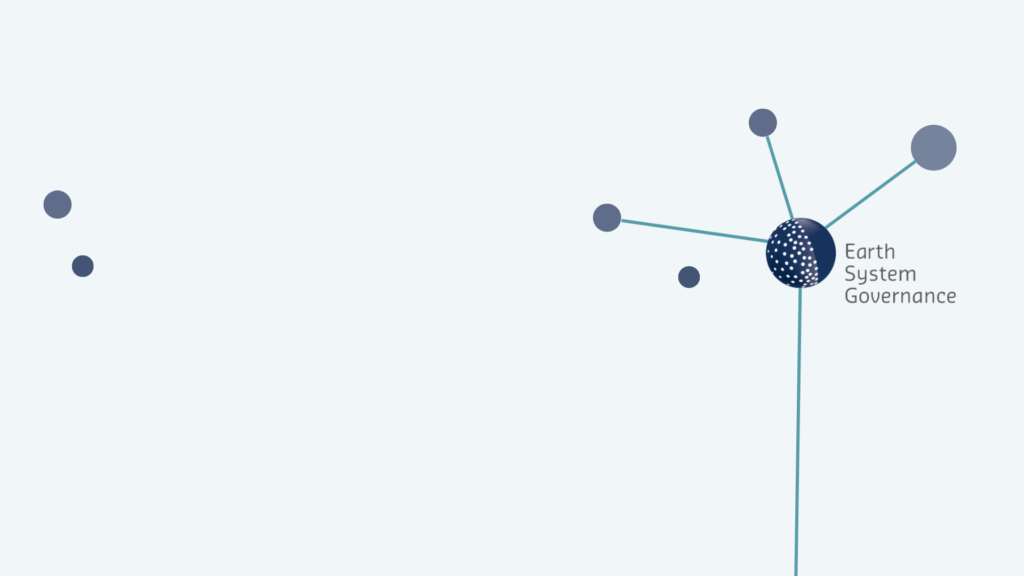Workshop on Climate Change Governance in the Asia-Pacific Region: Agency, Accountability and Adaptiveness, organized by the Climate and Environmental Governance Network and the Earth System Governance Project. Sponsored by the Asia-Pacific Network for Global Change Research and the College of Asia and the Pacific, ANU.
14-16 March 2012, Canberra, Australia
Workshop aims:
- To bring together early career researchers (late-stage PhDs and academics that completed their PhD no more than 5 years ago) from the Asia-Pacific Region to discuss the challenges of climate governance;
- To connect senior researchers and eminent scholars based in Australia with early career researchers in the wider region;
- To produce an edited volume addressing the key themes of the workshop.
Workshop themes:
(The following themes draw upon the Earth System Governance Science and Implementation Plan, available at www.earthsystemgovernance.org)
Agency
Large and complex problems, such as climate change, challenge the capacity of traditional state structures of governance. Moreover, this capacity varies greatly among nation-states, with developing country governments typically dealing with substantial restraints on resources and capacity and limited access to information and expertise. Cooperation with other states, but also with local, domestic and transnational non-state actors, appears to be imperative. Additionally, many institutions of climate governance have already emerged ‘beyond the state’; that is, they are already inclusive of, or even driven by, non-state actors such as corporations, scientific networks, non-profit organizations, banks, etc. In some instances, these actors have taken on authoritative roles in which they substantively participate in the creation of rules. As such, they can be considered ‘agents’ of climate change governance. This session of the workshop will be aimed at identifying the key agents of climate change governance in Asia and the Pacific, their sources of authority, and their significance in the region.
Accountability
Accountability is closely related to the legitimacy of governance processes, which in turn substantially determines the compliance-pull and effectiveness of rules. Traditional forms of democratic accountability that operate when governments are the sole or central actors do not apply when new forms of governance emerge of a public-private or private nature. Issues of participation and inclusiveness, transparency and openness are important in all forms of governance but become particularly critical when state actors are marginalized. This session of the workshop will address the potential sources of accountability in climate change governance in the Asia-Pacific region, the role of transparency in fostering accountability, and how mechanisms for enhanced accountability enhance or detract from the effectiveness of governance systems.
Adaptiveness
Adaptiveness is an umbrella term for a set of related concepts— vulnerability, resilience, robustness, adaptive capacity and social learning— to describe changes made by social groups in response to, or in anticipation of, challenges created through environmental change. Within the framework of earth system governance, the term adaptiveness includes the governance of adaptation to social-ecological change as well as the processes of change and adaptation within governance systems. Adaptation to climate change has been a contentious topic in political debates with many fearing that it would divert attention from the need to address the underlying causes of rising atmospheric greenhouse gas concentrations. However, the IPCC Fourth Assessment Report highlights the developing international consensus on the need to build adaptive capacity, particularly in poor countries. The need for greater adaptiveness is especially evident in the Asia-Pacific region, in light of the damage inflicted by recent extreme climatic events as well as the looming threat to the very existence of small low-lying island states posed by climate change. This session of the workshop will address the politics of adaptiveness (i.e. adaptiveness for whom?), the current adaptive capacity of countries in the region, and the governance processes that could best enhance adaptiveness.
Who should apply?
The workshop is designed for early-career researchers (ECRs) in the Asia-Pacific Region working in the field of climate change governance. ECRs from Australia and from low income country members of the Asia-Pacific Network for Global Change Research (APN) are particularly encouraged to apply. APN low income member countries are Bangladesh, Bhutan, Cambodia, China, Fiji and all Pacific Island States, India, Indonesia, Lao PDR, Malaysia, Mongolia, Nepal, Pakistan, Philippines, Republic of Korea, Singapore, Sri Lanka, Thailand and Vietnam (http://www.apn.gr.jp/newAPN/indexe.htm).
Application Process
Please submit the following:
- CV
- Abstract (300-500 words) of a potential chapter based on one or more of the workshop themes for the edited volume resulting from this workshop (note that acceptance of an abstract for the workshop does not automatically result in inclusion of the chapter in the edited volume).
- Writing sample (e.g. journal article or chapter of thesis)
The organizers expect to be able to provide funding for up to 10 participants from outside Australia, covering travel expenses, accommodation and full catering. Logistical support will be provided for travel arrangements and visa applications. Some funding may be available to support successful applicants based within Australia, although participants will be encouraged to also seek funding from their home institutions.
Deadline for applications is 30 September 2011.
Applications should be send electronically to Dr Kyla Tienhaara, Co-Director of CEGNet (kyla.tienhaara@anu.edu.au). Please do not hesitate to contact her with any questions.


